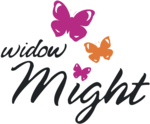by Miriam Neff
©2008 Used with permission
800,000 join our ranks annually. We are a fast growing demographic noticed by new home builders and a lucrative niche for health and beauty products. We are invited to dinners by financial planners and surveyed by designers for home features that will convince us to sign on the dotted line.
In contrast, one pastor described us by saying we moved from the front row of church to the back row of church and then out the door. We moved from singing and serving to solitude and silent sobbing, and then on to find a place we belong.
Scripture says the character of a nation is shown by how it treats us, in fact the character of individuals and the church is shown by how it treats us.
Who are we? We are the invisible among you – the widow.
I am one. I am a part of the fastest growing demographic in the United States as baby boomers age. We lose 75% of our friendship network when we become one. 60% of us experience serious health issues in that first year. One third of us meet the criteria for clinical depression in the first month after our spouse’s death, and half of these remain clinically depressed a year later. Most experience financial decline.
If someone had described this scenario to me five years ago, I would have stated emphatically, “It can’t be so! In the community of believers we support each other. We walk together on the journey.” I look back on my own responses to women who became widows and realize how little I understood, how little I empathized, how seldom I walked beside them. Many, in fact, became invisible whether it was in ministry positions, small group participation, or social events. It appears that about half leave the church they attended with their spouse: some reconnect to a place that matches their needs.
If someone had quoted the friendship statistic, I would have thought, “That won’t be me.” With the network that surrounds Bob and me, I will never experience loss of that magnitude. Yet I did. Connections that are primarily through our husbands, change and departures, while appropriate are still painful to process.
Who are we? We now have the title nobody wants. (I still will not mark ‘X’ in the ‘widow’ box; I mark ‘Mrs.’) Becoming a widow means nothing is the same. With Bob’s exit to heaven absolutely every iota of my existence has changed: my calendar, my check book, what’s in my frig, the wake-up alarm time, the thermostat, the traffic pattern in the bedroom, which restaurants I can enter, and yes, the look in my children’s eyes when they step in the door on holidays. My living space is more cluttered, make-up is seldom used, and I am familiar with the smell of car oil as I sit in Lube Right next to the overdone coffee wondering what Bob did when he waited here.
There are other changes so private and personal they cannot be shared. Loneliness and solitude are words that are not descriptive enough of the space that becomes the cocoon of the widow. We discover that our journeys are very different and we fit in no mold. However, we have an incredibly strong connecting bond that links us to each other because of our shared experience.

We lose 75% of our friendship network when we become one. 60% of us experience serious health issues in that first year.
